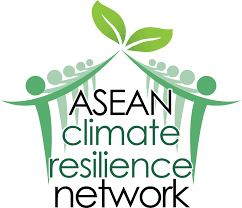
OCT 11, 2022 | NEWS
After energy, the agriculture sector is the second-biggest source of greenhouse gas (GHG) emissions. The upcoming UN Climate Change Conference (COP 27) in early November in Sharm El-Sheikh, Egypt, will continue the Koronivia Joint Work on Agriculture (KJWA) agenda item, highlighting the topic of agriculture and climate change.
Against this backdrop, national representatives as focal points of the ASEAN Climate Resilience Network (ASEAN-CRN) and partners gathered in Bali, Indonesia for an event held from 27 – 29 September on the theme “Transformation to Low Emissions and Resilient Agrifood System: A Knowledge Exchange Event and Climate Policy Negotiations Training”. The objective was for participants to learn more about net zero and low carbon emission concepts and their relevance for agriculture; to acquire basic knowledge and skills needed for the COP27; to exchange knowledge and experience among peers, and network.
The Indonesia National Research and Innovation Agency (BRIN), together with the Thailand Department of Agriculture (DOA) as Chair of ASEAN-CRN, hosted the event. This was organized in a hybrid format, allowing participants to join online and onsite. For the ASEAN-CRN focal points joining onsite, the event was an avenue for having face-to-face discussions and exchanges after two and a half years of extensive virtual collaborations.
Assessing the feasibility to accelerate the region’s transition to a low-emission agrifood system
After the opening remarks from the host and partner organizations, the morning session of Day 1 provided participants with the experts’ overview of agriculture’s zero and carbon neutrality concepts. This was followed by an assessment of the feasibility of accelerating the region’s transition to low emissions and resilient agrifood systems.
To kick off the discussion, session 1 started with “Understanding carbon neutrality in agriculture”, with Mr. Beau Damen, Natural Resources Officer – Climate Change & Bioenergy, FAO-Regional Office for Asia and the Pacific (FAO-ROAP), giving a talk titled “Resilient & low emissions agriculture: The case for transformative actions”. He started the session by summarizing key findings from the Sixth Assessment Report of the United Nations Intergovernmental Panel on Climate Change (IPCC Report), which in principle calls for a major paradigm shift, particularly in food systems. He cited examples of negative impacts which have already occurred in various places, for example, the shift in seasons, decreased crop yields, and decline in animal health due to heat stress, among others. He then went on to present a few cases for action, explaining that “cuts in methane emissions can lead to a larger impact than cuts in CO2 emissions due to methane’s atmospheric half-life of less than a decade”. He ended his presentation by stressing the importance of climate-resilient and low-emissions agrifoods systems as a way to tackle climate change impacts and deliver adaptation and mitigation co-benefits.
The next speaker, Dr Ciniro Costa Junior from the Alliance of Bioversity International and the International Center for Tropical Agriculture (CIAT), defined what decarbonization means in his presentation titled “Defining net zero, net neutrality and decarbonization in agriculture. Is this feasible for ASEAN?”.
“Decarbonization refers to measures through which a business sector or an entity or government organization or farm reduces its carbon footprints, primarily its GHG emissions, carbon dioxide, methane or nitrate oxide,” he explained. Whether or not the net zero agenda is feasible for ASEAN, Dr Ciniro noted that, “Even though it is ambitious, it is attainable and there is huge GHG emission mitigation potential from the land use and agriculture sectors, particularly in rice production, protection and restoration in the natural landscape.”
Led by the expert and graphic illustrator, the participants participated in the visioning exercise. The visioning exercise in the afternoon allowed CRN focal points to re-visit a visual vision map from March 2022. The visual map as a collaborative effort elaborated on common goals, values and actions.
Decarbonization refers to measures through which a business sector or an entity or government organization or farm reduces its carbon footprints, primarily its GHG emissions, carbon dioxide, methane or nitrate oxide,” he explained. Whether or not the net zero agenda is feasible for ASEAN, Dr Ciniro noted that, “Even though it is ambitious, it is attainable and there is huge GHG emission mitigation potential from the land use and agriculture sectors, particularly in rice production, protection and restoration in the natural landscape.”










Add new comment